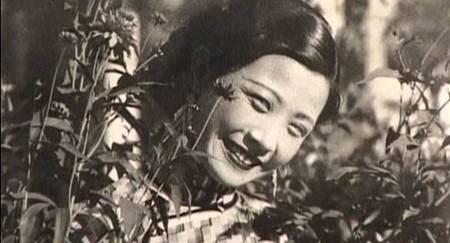Ruan Lingyu
One of the four beauties of the Republic of China.
Formerly known as Ruan Fenggen, his ancestral home was Xiangshan County, Guangdong Province (present-day Nanlang Town, Zhongshan City)

Born in Shanghai in 1910.
In 1917, she went with her mother to the Zhang family as a maid in the large household, and barely made ends meet.
In 1919, he enrolled in the Chongde Girls' School founded by American missionaries and dropped out.
In 1926, he entered the Star Film Company and starred in his first film "Nominal Couple".
In the same year, he also starred in the movies "Beijing Yang Guifei" and "Blood and Tear Monument".
In 1928, he starred in the movies "Cai Zhuangyuan Built Luoyang Bridge" and "Baiyun Pagoda".
In 1929, he starred in the movies "Burning Kowloon Mountain", "Treasure Book of Lust", "The Great Destruction of Kowloon Mountain", and "Lonely Hong after the Disaster".
In 1930, he starred in "Suicide Contract", "Wild Grass Idle Flower", and "Spring Dream of the Old Capital".
In 1931, he starred in the movies "Peach Blossom Weeping Blood", "Love and Obligation", "A Cut of Plum", "Yutang Spring", and "Continuing the Spring Dream of the Old Capital".
In 1933, he starred in the films "Gadgets", "City Night", and "Three Modern Women".
In 1934, he starred in the movies "Goddess", "New Woman", "Life", and "Xiangxuehai".
In 1935, he starred in the movie "National Wind", and committed suicide by taking sleeping pills in the same year, at the age of 25.
Ruan Lingyu's roles in the film are mostly tragic.
Her love and marriage, her life, are also touching tragedies.
The 14th Golden Rooster and Hundred Flowers Film Festival selected Ruan Lingyu as one of the 100 most outstanding film actors in the history of Chinese cinema in the past century.